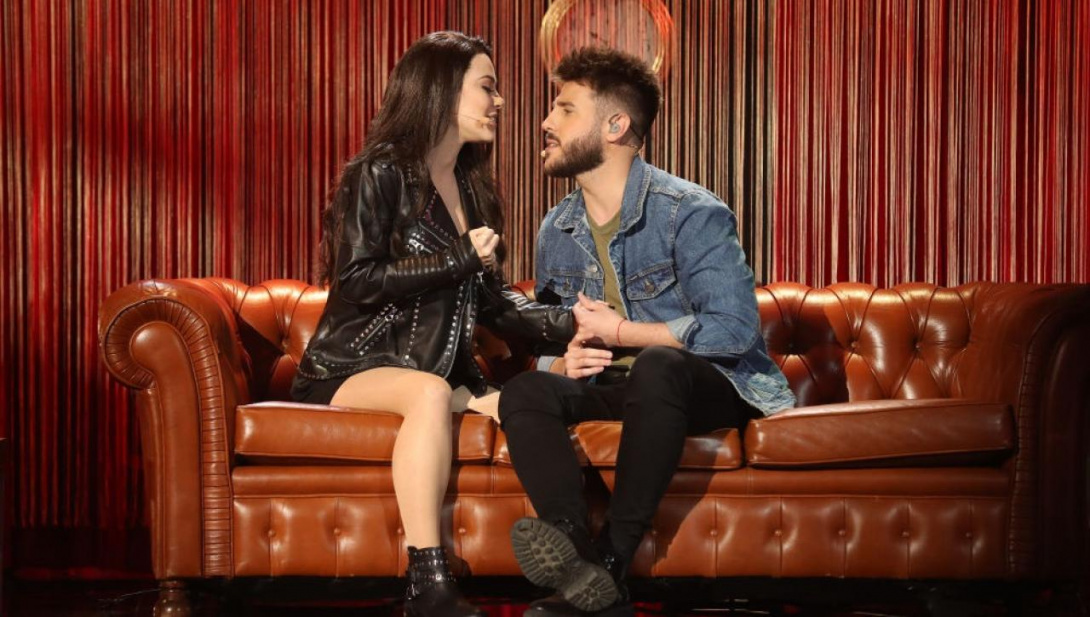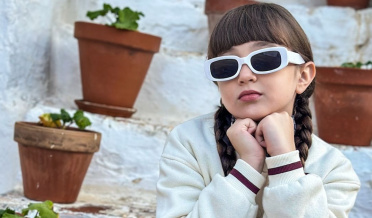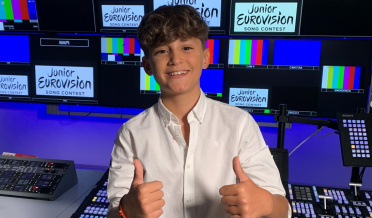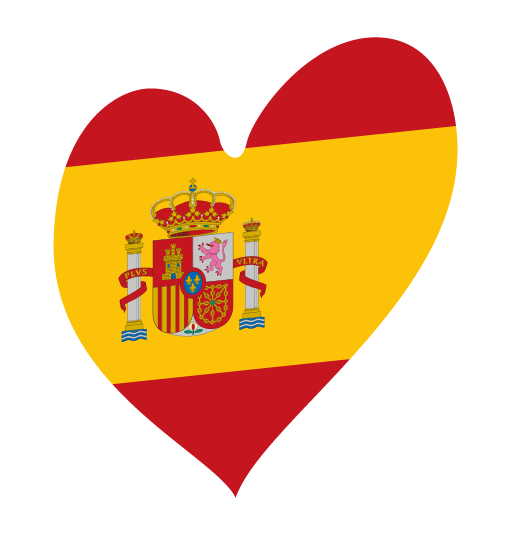
Hits after hits for Spain at Junior Eurovision
18 December 2020 at 16:00 CETSpain's first ever participation was in the first Junior Eurovision Song Contest back in 2003. The country organised a talent show called Eurojunior for kids aged 9-14 so they could search for their representative. It aired for three weeks in September 2003 and followed the style of the national selection, Operación Triunfo, which was developed by Spanish broadcaster TVE for the Eurovision Song Contest 2002.
From heaven
Solo artist, Sergio, was elected to represent Spain by the TV viewers of Eurojunior 2003. He was also accompanied by Juana, who competed in the national Eurojunior selection process too.
His performance in Copenhagen turned out to be an emotional one; Sergio sang his song Desde El Cielo which was an ode to his mum who'd passed away.
There wasn't a dry eye left in the room after his emotional performance, which took him and Spain all the way to second place.
Spain's national selection programme and the compilation album with its 12 participating songs went on to became a huge success. Eurojunior 2003 won ‘Best Reality Contest’ at the National TV Awards in Spain and the album was certified 4 times platinum, making it one of the biggest selling albums in the country!
After his second place finish, Sergio and four of his fellow participants in the national selection, formed an equally successful band called '3+2'. They went on to release 4 albums together and toured throughout Spain until disbanding in 2007. After some time, Sergio decided to leave the music scene to focus more on his nursing studies.
Rather dead than plain
Building on their first year seemed like a difficult task, but Spain still had the opportunity to take it one step further the following year with a win.
Spanish television hosted the 2004 edition of Eurojunior which, unknowingly at the time, gave spectators a glimpse into the future. Blas Cantó was a participant in the show but also went on to represent Spain in over 15 years later in the Eurovision Song Contest 2020 and will come back again in 2021.
In the end, the winner of their national selection turned out the be the vivacious 9-year-old, María Isabel. She captured the nation’s hearts with her self-confidence and banger hit, Antes Muerta Que Sencilla.
On the evening of the 20 November 2004, María Isabel and four of her Eurojunior colleagues, Alba, Carolina, Sara and Anabel, stormed the Junior Eurovision stage in Lillehammer, Norway. Their unforgettable Spanish-flavoured performance also became a hit in the Contest just like it did at home. She went on to win the competition for Spain with a huge margin of 31 points, making María Isabel a local hero in her hometown of Ayamonte - so much so, that you can now find a statue of her there!
Antes Muerta Que Sencilla still ranks as the best selling entry in the Junior Eurovision Song Contest. Not only did it top the Spanish singles chart, but it also reached the Top 10 in France and made quite the impact in countries like Switzerland, Belgium and even Japan too!
María Isabel's success continued on after her participation in Junior Eurovision. She went on to release 6 albums, starred in a popular film, participated in Spain’s National Final for Eurovision in 2016 and is now currently starring in one of the most popular Spanish TV shows, Tu Cara Me Suena (Your Face Sounds Familiar).
I bring you flowers
Antonio José was Spain's third Junior participant after winning the country's national selection in 2005.
He traveled all the way to Hasselt, Belgium, where he performed Te Traigo Flores (I Bring You Flowers), a type of flamenco-pop song fused with Latin rhythms. His powerful performance also went on to take second place for Spain. His song's success opened up more opportunities for the singer and he went on to release two albums before turning the age of 15!
Some 10 years since his participation in the Junior Contest, Antonio José did one better in the Spanish version of The Voice which he went on to win! As an adult, he continued to make music and released four more successful albums, all of which hit the number 1 spot in his home country, making him one of the most popular male artists in Spain.
Just recently, he visited Junior Eurovision alumni, María Isabel in the aforementioned Tu Cara Me Suena show, where they surprised the viewers by performing parts of Te Traigo Flores.

I give you my voice
Before Spain took a break from Junior Eurovision, they achieved yet another Top 5 finish. Dani Fernández and his song Te Doy Mi Voz managed to secure fourth place in the Junior Eurovision Song Contest 2006, which took place in Bucharest.
Three years after his participation, Dani joined the five-piece boy band AURYN. The group also featured the Spanish Eurovision 2020-21 Eurovision artist Blas Cantó. The band continued to grow in popularity in 2011 after their performance of Volver (Return) which finished second in Destino Eurovision, Pain's Eurovision National Selection.
AURYN turned out to be the biggest selling Spanish boy band to date, continuing the country's Junior Eurovision success story. They released four well-received albums between 2011 and 2016 before they split up. Last year, Dani Fernández released his debut solo album, Incendios, which peaked at number 2 in the Spanish Albums Chart.
Mars
After 13 years away from the competition, Spain's long-awaited comeback came in 2019 when the Contest traveled to Gliwice-Silesia, Poland. Their selected representative, 12-year-old Melani García, had also participated in The Voice Kids. Her supreme voice impressed both the public voters and the jury groups at the Junior 2019 competition with her song, Marte (Mars) which finished in third place.
Much like the Spanish Junior representatives before her, Melani has continued with her success. She has just released two new songs in 2020: Grita Conmigo (Shout With Me) and Adios (Goodbye), which just came out today!
Ahead
To everyone's enjoyment, the country returned again for the 2020 edition with the hopes that Spain would continue their triumphant participation in the Contest.
This time, the country put their faith into the sweet and cheerful Soleá, who couldn't get enough of the Junior Eurovision experience despite the special circumstances under which it took place.
The Andalusian singer from Sevilla was a little bit sad that she was unable to meet her fellow performers in person due to the COVID-19 pandemic. However, she put her focus on spreading positivity across the continent with her song, Palante, an urban-pop song with a dash of flamenco.
Despite not winning the Contest, Soleá continued the high-ranking streak for Spain with her third place finish. This meant that out of the country's 6 entries in the competition, they've always finished inside the top 4!
We can't wait to see what the future holds for Soleá, but if it's anything like her predecessors, we know it will be a successful one!
Who is your favourite Spanish Junior participant?
Related stories



